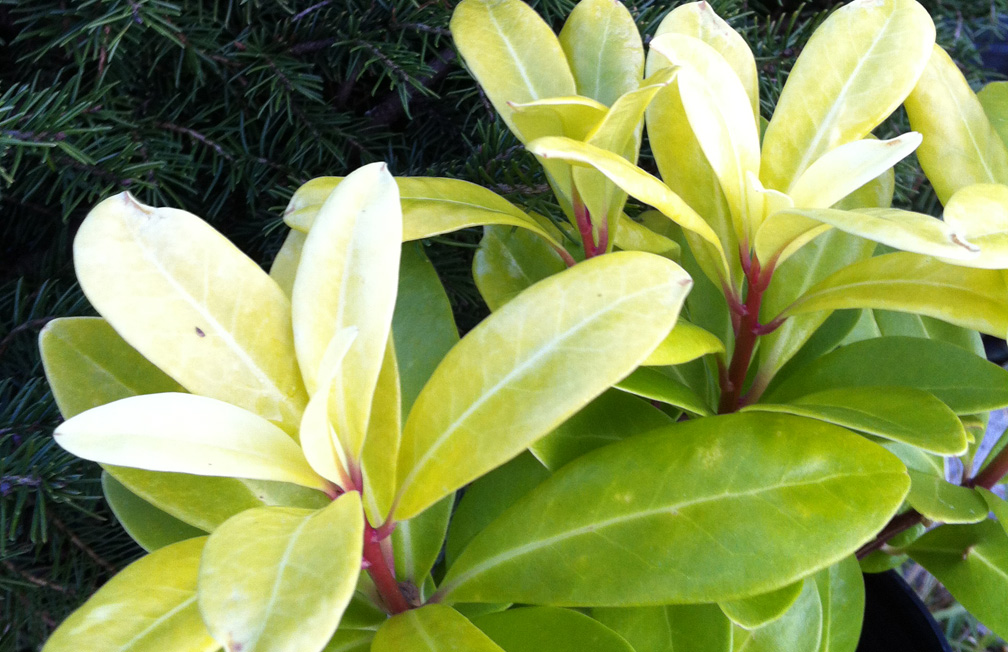
The small anise tree can be a ray of sunshine on a dreary winter day
Submitted by Dr. Sue Hamilton
For a bright and showy winter shrub, you can’t beat ‘Florida Sunshine.’ The cultivar is a member of the species Illicium parviflorum, also known as small anise tree or Ocala yellow star.
Introduced by distinguished plantsman, Tony Avent, of Plant Delights Nursery in Raleigh, N.C., Florida Sunshine features unique chartreuse leaves that distinguish this small-leaf anise from others. The foliage all but glows in shady areas, and in the fall the color changes to a bright yellow-gold while the leaf petioles and stems turn a contrasting scarlet-red, both providing for nothing less than a brilliant show in sometimes dull winter landscapes.
Another great feature of this plant is that its evergreen foliage is wonderfully licorice scented. Although they are not notably showy, white flowers accent the gold foliage in late spring. Florida Sunshine exhibits cold hardiness in Zones 6-9.
Florida Sunshine is a vigorous specimen, growing to be a dense shrub measuring 6 ft to 8 ft tall by 4 ft to 6 ft wide. Winter shade is recommended to reduce leaf burn, and wet soils result in the fastest growth habit, although the plant is tolerant of a wide range of soil conditions. Left alone by deer, this plant is a good choice for a woodland setting or for foundation plantings, mixed borders, evergreen screens or even decorative containers.
Florida Sunshine looks great year round, but it especially glows on a gray winter day.When mature, this small anise tree can be a bright garden focal point.
Dr. Sue Hamilton is on the faculty in the University of Tennessee Department of Plant Sciences and also serves as Director of the UT Gardens. The University of Tennessee Gardens located in Knoxville and Jackson are part of the UT Institute of Agriculture. Their mission is to foster appreciation, education and stewardship of plants through garden displays, collections, educational programs and research trials. The gardens are open during all seasons and free to the public.
See http://utgardens.tennessee.edu/ and http://westtennessee.tennessee.edu/ornamentals/ for more information.
Contact:
Dr. Sue Hamilton, Director of the UT Gardens, sueham@utk.edu
Patricia McDaniels, UTIA Marketing and Communications Services, 615-835-4570